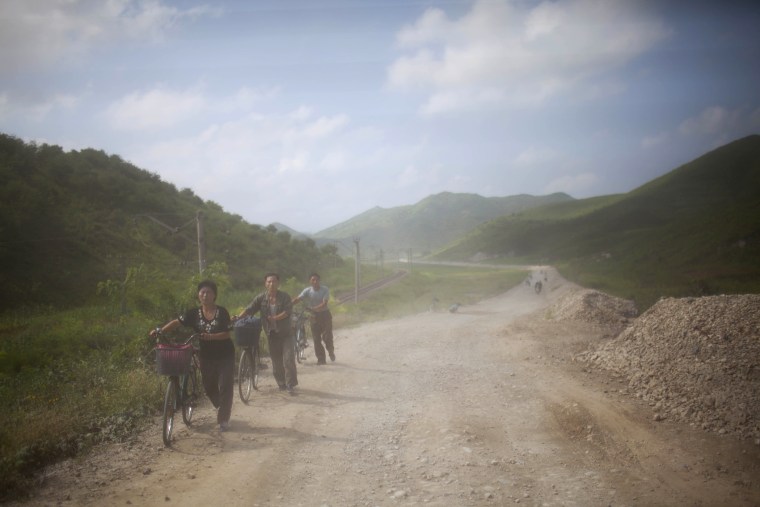A report released Monday by the United Nations’ Office of the High Commissioner for Human Rights accuses the government of North Korea of “crimes against humanity,” detailing widespread and ongoing human rights abuses by the state.
"These are not mere excesses of the State," the report read, "they are essential components of a political system that has moved far from the ideals on which it claims to be founded. The gravity, scale, and nature of these violations reveal a State that does not have any parallel in the contemporary world."
The nearly 400 page report alleged that “systemic, widespread, and gross human rights violations have been and are being committeed by the Democratic People’s Republic of Korea.” It also called on the U.N. Security Council to take matters to the International Criminal Court.
North Korea refused to cooperate with the UN commission's investigation and denies committing any human rights violations. It called the report "a product of politicisation of human rights on the part of EU and Japan in alliance with the US hostile policy."
Without access, the commission held public hearings and interviewed more than 240 witnesses and victims. U.N. investigators spent nearly a year uncovering evidence of abuses that range from running “an all-encompassing indoctrination machine” to torture and detention to public executions and disappearances to prison camps.
“In the political prison camps of the Democratic People’s Republic of Korea, the inmate population has been gradually eliminated through deliberate starvations, forced labour, executions, torture, rape and the denial of reproductive rights enforced through punishment, forced abortion and infanticide,” the report said. Up to 120,000 people are estimated to be detained in prison camps.
The list of violations also included widespread propaganda, near-constant surveillance and mass starvation. When speaking to reporters about the investigating panel's findings, Michael Kirby, the panel's chair, called some of what is happening in North Korea "strikingly similar" to atrocities committed by the Nazis.
Human rights groups have called on the UN to take action and to refocus energy from simply preventing North Korea from building nuclear weapons.
"This shocking report should open the eyes of the UN Security Council to the atrocities that plague the people of North Korea and threaten stability in the region," Kenneth Roch, executive director of Human Rights Watch said in a statement. “By focusing only on the nuclear threat in North Korea, the Security Council is overlooking the crimes of North Korean leaders who have overseen a brutal system of gulags, public executions, disappearances, and mass starvation.”
Roseann Rife, East Asia Research Director at Amnesty International, also urged immediate international action.
“The international community cannot afford to sit idly by, as these incomprehensible crimes are perpetrated. The Commission’s findings reinforce the need for the UN Security Council to raise human rights alongside security and peace when it comes to North Korea,” she said in a statement.
Amnesty International released satellite images in December that showed ongoing development at North Korean prison camps.
The report’s findings will be officially presented to the U.N. Human Rights Council on March 17. While the investigations findings could set the stage for formal charges of crimes against humanity for North Korean leader Kim Jong Un, it is highly improbable that an ICC investigation would make it through the UN Security Council, where North Korea’s ally China would likely veto any action.
